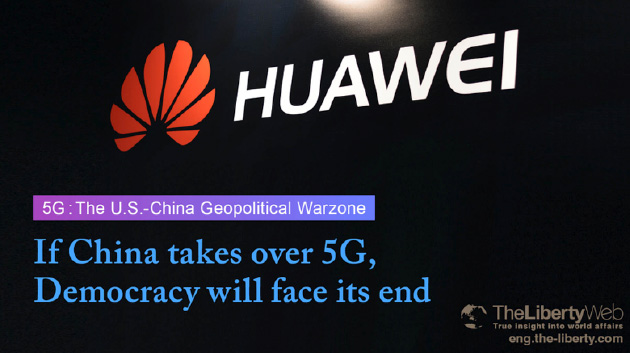5G: The U.S.-China Geopolitical Warzone (1)
5G is at the center of the technological struggle between the U.S. and China. We will take a closer look into rapid actions taken by the U.S. to prevent China’s 5G domination.
(editorial board Hanako Cho)
Currently, there is a violent fight for power between the U.S. and China over an invisible warzone: the “5G (5th generation mobile system) network.”
5G can offer networks with a communication speed that is 100 times faster than the current 4G network, and data storage 1000 times greater. It has the capacity to download a two-hour movie in three seconds or perform a remote surgery, bringing a convenient age that can transmit a large amount of information instantaneously.
At the same time, what if this network containing huge amounts of information is controlled by companies under communist China? That could lead, not to a “convenient age,” but back to a “dark age.”
Why the U.S. Takes an Aggressive Approach
On May 16, President Trump, who understood the imminent danger, created an apparent embargo against Huawei, a major Chinese telecommunications company.
With this, U.S. companies such as Intel and Alcom, in addition to the British company ARM, decided to stop the provision of semiconductors to Huawei. Google is generally directing its policies to stop providing the Android software.
The reason for this aggressive policy by the Trump administration comes from the fact that allied countries are not taking similar measures against Huawei.
Last year in August, the U.S. passed a National Defense Authorization Act that prohibited the governmental use of products and parts from five Chinese companies including Huawei. This was intended to gain support from Five Eyes, an alliance that shares classified military information.
However, only Australia, Japan and New Zealand agreed to ban the governmental use while Great Britain and Germany are against complete prohibition.
Huawei has the largest number of required patents for 5G in the world. Other allied countries are apprehensive due to the concern of “the high cost to transition from Huawei’s 4G network that they currently use” and “the disadvantages they would gain in the development of 5G if they follow U.S. policies to ban Huawei.”
Increasing “Spies” and “Robbery”
So what would happen if Huawei is incorporated? Even though Huawei neglects it, there are backdoors integrated into its products that can leak classified data to the Chinese government. Already, China has taken a maximum of 60 billion dollars of intellectual property through cyberattacks in a year. When Chinese companies such as Huawei are allowed to maintain our network, this number would likely increase.
It is also necessitated by communist China’s law for Huawei to provide its information when ordered by their government. In other words, the incorporation of Huawei would allow the network to be dominated by the Chinese government.
Widening the Digital Tyranny
5G will also have the power to maintain safety. If smart cameras with AI technology can send large amounts of high-quality images through the 5G network, “police surveillance” will increase across the nation. Japan is also looking into the technology in preparation for the Olympics; however, this technology may be utilized improperly by the government to tighten the surveillance of troublesome citizens.
18 countries have already incorporated China’s “citizen-surveilling system” while another 36 are apparently receiving China’s “guidance to manipulate public opinions.”
Totalitarianism is spreading slowly but surely through the Internet. We asked one of the architects of National Security Strategy, Robert Spalding III, about ways we can fight against this threat.
How Different Countries/Regions are Dealing with Huawei Products
United States: Decision to ban
Australia: Decision to ban
Japan: Decision to ban
New Zealand: Decision to ban
Great Britain: Put on hold
Canada: Put on hold
EU: Decision up to member states. Germany hasn’t announced a ban.



















